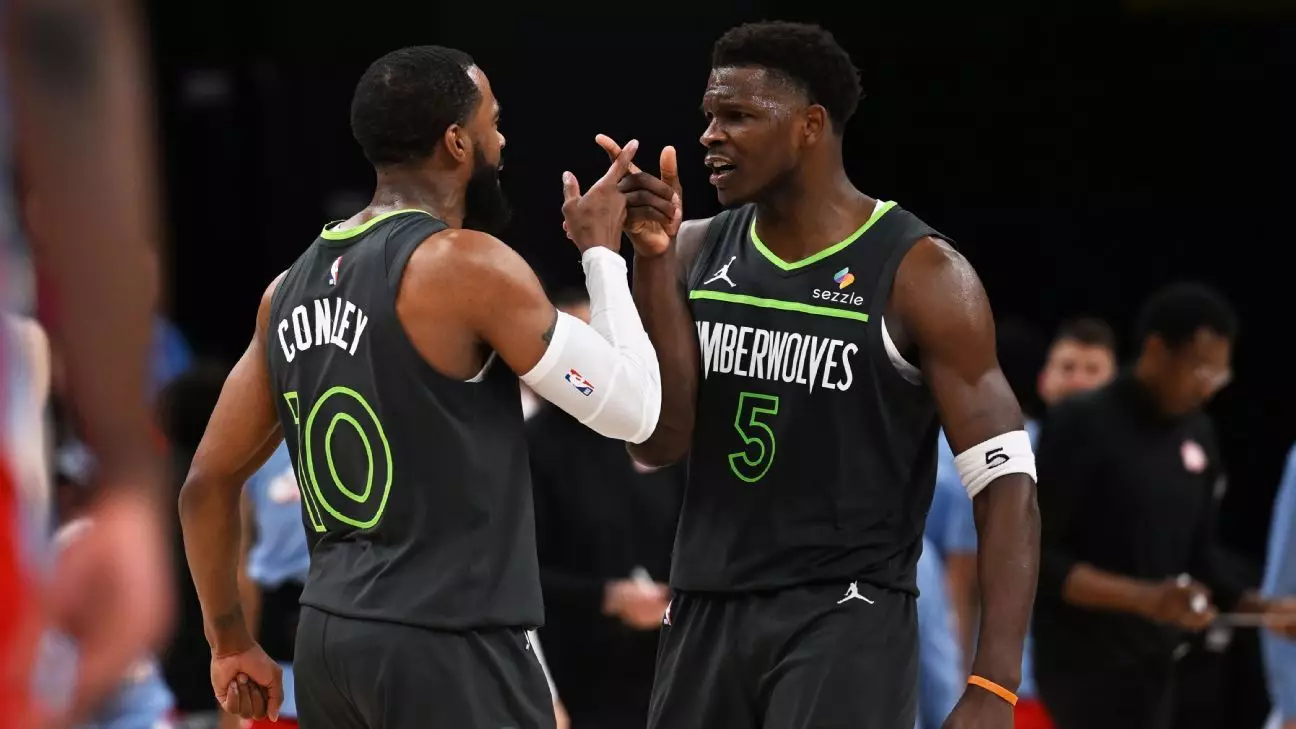In an unexpected turn of events, the Minnesota Timberwolves breathe a sigh of relief as they prepare for their final regular-season game with the prolific Anthony Edwards in action. Just days before an essential match against the Utah Jazz, the NBA decided to rescind a technical foul handed to Edwards during a victory against the Brooklyn Nets. This technical, meant to express the league’s intolerance for unsportsmanlike behavior, would have resulted in an automatic suspension that could have dramatically shifted the dynamics of the Timberwolves’ playoff aspirations.
The reinstatement of Edwards, following the rescindment of his NBA-high 18th technical foul of the season, underscores the fine line between spirited competition and disciplinary action in professional sports. The incident in question occurred during a heated match where on-court decisions by referees can often spark a player’s ire. In this case, the glaring nature of the foul assessment led to Edward’s visible frustration manifesting in profanity – a classic, albeit regrettable, response that many players might relate to.
The System at Odds
This incident prompts a larger conversation about the NBA’s disciplinary framework. Is a one-game suspension for 16 technical fouls excessive, or does it serve as a necessary deterrent against actions that undermine the integrity of the game? While it’s crucial to maintain professionalism, one must consider the context: a high-stakes game environment where emotions run wild. Edwards, as he pointed out, was merely seeking clarity around a controversial call, and his exasperated response should not signify a blatant disregard for the rules.
The crew chief’s decision to uphold the technical on the night was predicated on his perception of “profanity directed at an official,” but one has to question whether a transient emotional outburst merits such a severe punishment. The ability of the league to review and overturn these calls illustrates an acknowledgment of the nuances within each moment—a much-needed flexibility amid a rigid framework.
The Stakes of the Season
For the Timberwolves, every game has become a chess move with critical playoff implications. The fluctuations in the standings create an atmosphere laden with tension—a win against the Jazz could potentially elevate them from the very precarious eighth seed to a desirable fourth seed, guaranteeing home-court advantage in the upcoming playoffs. To think they could go from calamity to salvation in the span of a match intensifies the weight of performances as teams across the league jockey for position.
In the case of the Timberwolves, Edwards’ talent and burgeoning leadership role cannot be overstated. He embodies the team’s fiery spirit, a beacon during tense moments that can make or break playoff journeys. The looming question remains: how will the team perform under pressure? Despite the satisfying news about Edwards playing, his repeated technical fouls and financial penalties – accumulating a staggering $320,000 – raise concerns about his maturity and emotional control in high-pressure situations.
The Human Element
The dialogue opened by players and coaches regarding the nature of technical fouls reveals an essential truth about professional sports: there is a profound human element at play. Coach Chris Finch’s reasonable response better illustrates the frustrations felt not just by Edwards but by many players who grapple with the borderline between competitive spirit and disallowed expressions. The relationship between officials and players needs careful tending, acknowledging the intricacies of communication during games.
Ultimately, one can argue that it is the personal relationships built on the court that should weigh heavily on disciplinary actions. A swift reprimand risks alienating players and officials alike, potentially prompting a culture where players play with a hesitant mindset, fearful of the consequences of their emotions.
In this high-stakes environment, restraint mixed with passion will dictate whether the Timberwolves elevate themselves to the ranks of the playoff elite or falter at the threshold– a position that relies heavily on their star player and his capacity to balance his competitive edge with the necessary decorum required for success.

Leave a Reply